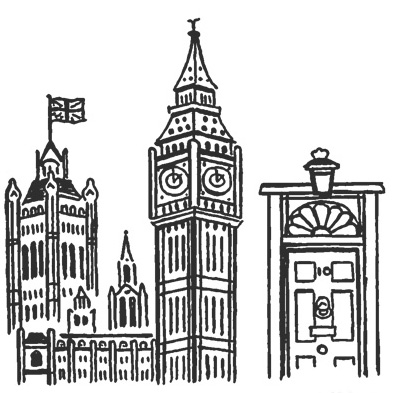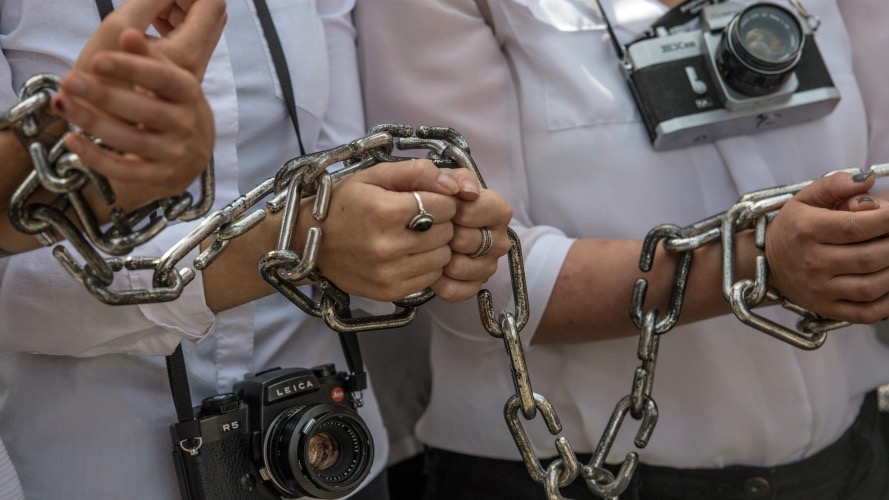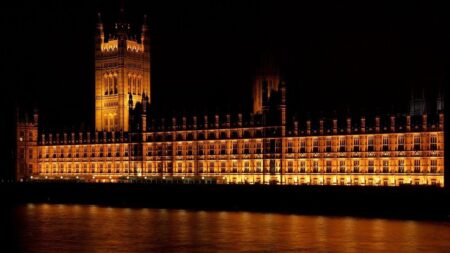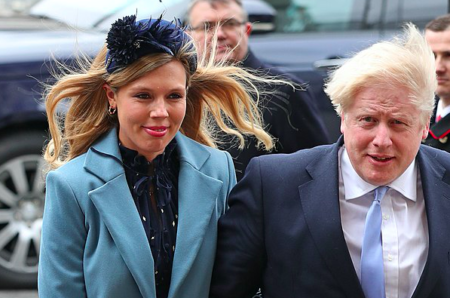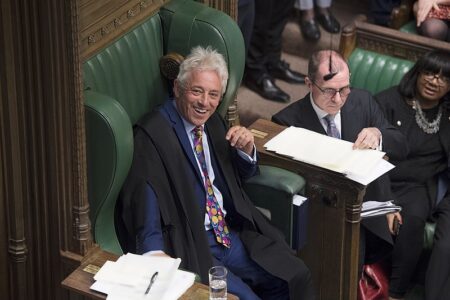World Press Freedom Day falls on 3 May – as a reminder to governments of the need to respect their commitment to press freedom, a day of reflection among media professionals about issues of press freedom and professional ethics, and a day of support for media which are targets for the restraint, or abolition of press freedom. It is also a day of remembrance for those journalists who lost their lives in the pursuit of a story.
Last Sunday we saw the hijacking of a civilian aircraft by the Belorussian government in order to kidnap the journalist Roman Protasevich, an outspoken critic of President Lukashenko’s illegitimate and oppressive regime.
This is one of the most audacious attacks on press freedom we have seen – but is just another of example of the increasingly brazen way that some governments seek to oppress legitimate journalism with increasingly impunity.
In 2018 we saw the murder of Jamal Khashoggi by agents of the government of Saudi Arabia in the grounds of their own consulate in Istanbul.
In 2017, Daphne Caruana Galizia, a campaigning journalist who investigated corruption and organised crime, delved into visa-for-sale schemes, energy deals, and Caribbean offshore companies set up for Maltese politicians, was assassinated by a car bomb planted by a professional hitman.
According to Reporters Without Borders, 50 journalists were killed around the world last year, and a further 13 already in 2021. These include Sadida Sadat and Shahnaz Roufi, in Afghanistan who worked for Enekaas TV’s dubbing service, and were gunned down in a Jalalabad alley as they were walking home at around 4:30 pm. Their colleague, Mursal Waheedi, was also shot in the rickshaw she had taken to go home. All three women were aged 20 or 21.
Furthermore, in 2020, 387 journalists and media workers were held in detention – 117 of these were in China, and 34 from the next highest country, Saudi Arabia
In The Philippines, in the five years since President Roberto Durterte came to power, 16 journalists have been killed in connection with their work, the latest of whom was beaten to death in May 2020.
Engaging in Lawfare
However, media freedom is not just being threatened by violent physical attack. We are also seeing the dubious legal procedures being used to intimidate or close down journalists. In The Philippines Maria Ressa, the journalist and chief executive of the digital news service Rappler, has been under repeated legal attack since the election of Duterte.
Rappler have tirelessly investigated human rights violations and the country’s increasing authoritarianism and Maria Ressa currently faces 10 open charges against her relating to nine separate cases – some of these are being brought retrospectively through new laws created since the alleged offences occurred.
However, in this country, too, our legal system is being used intimidate legitimate journalism through lawfare – the misuse of legal systems and principles against an opponent – by seeking to damage or delegitimize them, wasting their time and money.
Know as SLAPP – a Strategic Lawsuit Against Public Participation – actions like these are intended to censor, intimidate and silence critics by burdening them with the cost of a legal defence until they abandon their criticism of opposition. The initiator of such a lawsuit does not normally expect to win, but instead to wear down the defendant until they succumb to fear, intimidation, mount legal costs or exhaustion and cease their otherwise legitimate criticism.
For example, the journalist Catherine Belton, author of Putin’s People, which was published last year by Harper Collins, is facing lawsuits, along with her publisher, which have been filed in London by four Russian businessmen, including Roman Abramovich.
Data protection legislation is also being routinely abused to make multiple requests against investigative journalists and corporate research and intelligence companies, for any information they hold on an individual or organisation.
In Australia, the Protection of Public Participation Act 2008 protects discourages certain civil proceedings that a reasonable person would consider interfere with engagement in public participation. In the USA, high profile public figures are also limited in their access to the courts to pursue such cases. It is time we looked at whether such reforms are required in the UK, and also to review the GDPR legislation to prevent it being used to intimate those engaged in legitimate investigations acting in the public interest.
The price of press freedom
The news industry also faces considerable commercial pressures as a result of the increasing use of digital platforms for people to access information. The 2019 Cairncross Review, commissioned by the UK government found that sales of both national and local printed papers have plunged: they fell by roughly half between 2007 and 2017, and are still dropping. In addition, print advertising revenues, which used to carry much of the cost of producing news, have fallen even faster, declining in a decade by 69%.
To cut costs, there have been mergers, as well as heavy cuts in staffing: the number of full-time frontline journalists in the UK industry has dropped from an estimated 23,000 in 2007, to 17,000 today, and the numbers are still swiftly declining.
A recent investigation by the competition authorities in Australia found that for every $100 of online advertising spend, $53 goes to Google, $28 to Facebook and $19 to everyone else. This creates enormous pressure on other organisations, and in particular news companies and publishers that have in the past relied on advertising revenue in order to pay for their journalists and investigations. The decline in ad revenue for publishers is a direct challenge to the news industry itself, which has already led to the closures of a great number of publications and many of those that have survived have had to make significant reductions in their staff and budgets.
In order to preserve the future of public interest journalism, the Australian government presented a News Media Bargaining Code to Parliament to oblige Facebook and Google to come to the table with news publishers and negotiate a fair deal for journalistic content appearing on social media.
We need to ensure that all journalism receives fair compensation if we want the free press to continue to play an important role in our democracy, speaking truth to power and informing citizens.
Excerpted from yesterday’s Westminster Hall Debate to mark World Press Freedom Day earlier this month. Damian Collins MP is Chair of the APPG on Media Freedom

